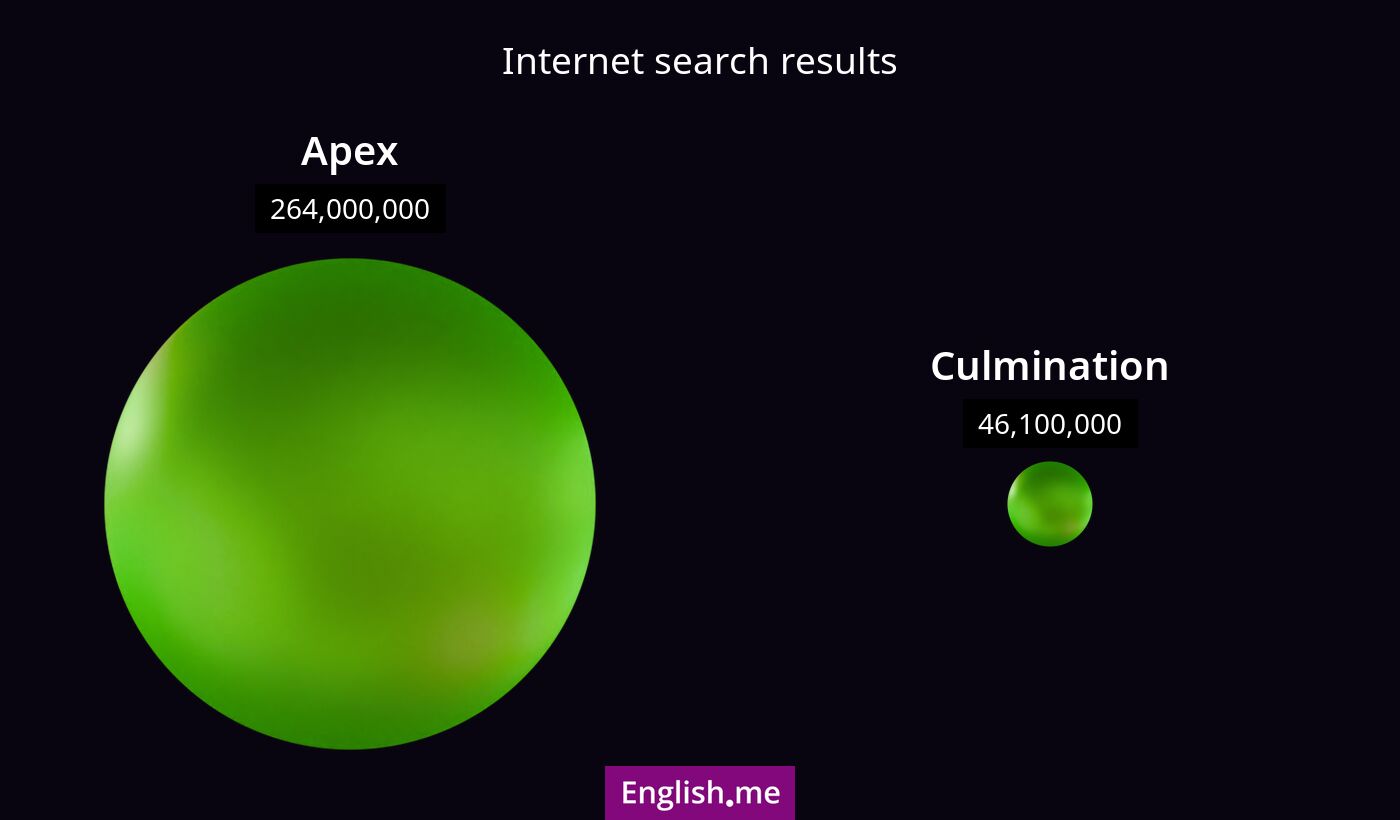"Apex" vs. "culmination": words at the top
Reviewed and edited by  Lloyd Cooper 07/05/2025, 04:53
Lloyd Cooper 07/05/2025, 04:53
English.me team member

 What is similar?
What is similar?
Both "apex" and "culmination" refer to the highest point or peak of something, often representing a climax or the most successful point in a process or series.
 What is different?
What is different?
"Apex" is often used more literally or physically to describe a peak or topmost point, such as the apex of a mountain. "Culmination" usually refers to the highest or most decisive point in a process, event, or period, emphasizing the result of development or effort rather than a physical peak.
 Which one is more common?
Which one is more common?

 Examples of usage
Examples of usage
Apex- The apex of the mountain was covered in snow.
- Winning the gold medal was the apex of her athletic career.
- At the apex of the triangle, a star was drawn.
- The concert was the culmination of months of planning.
- His promotion was the culmination of years of hard work.
- The movie reached its culmination with an unexpected twist.

 English
English español
español française
française italiano
italiano deutsche
deutsche 日本語
日本語 polski
polski česky
česky svenska
svenska Türkçe
Türkçe Nederlands
Nederlands